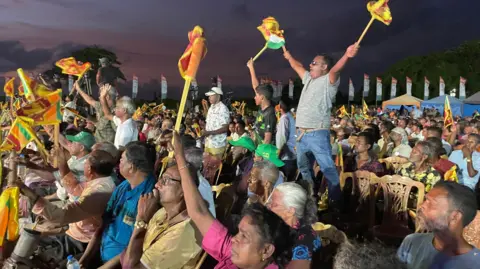The Present status of Sri Lanka: A Country in Emergency
Sri Lanka is presently wrestling with an uncommon emergency that has well established ramifications for its financial and political scene. The effect of the Coronavirus pandemic has revealed weaknesses in the country’s monetary construction, fundamentally influencing essential areas, for example, the travel industry, which is generally a significant supporter of public pay. The unexpected decrease in vacationer appearances during the pandemic has upset occupations as well as exacerbated a current obligation emergency. As per a report by the World Bank, the country’s economy shrunk by roughly 3.6% in 2020, featuring the seriousness of the slump.
Intensifying the difficulties, Sri Lanka is confronting taking off expansion, which has arrived at disturbing levels, especially after international pressures have prompted swelled product costs universally. Fundamental merchandise, like food and fuel, have seen cost increments of more than 40% in certain classifications. Day to day existence for the normal Sri Lankan is progressively described by increasing expenses, prompting difficulties that strain family financial plans. Numerous families are currently compelled to focus on fundamental necessities, changing dietary propensities and restricting admittance to medical care administrations.
Political flimsiness further convolutes what is happening, as fights and common agitation have flooded because of seen administrative deficiencies in dealing with both the pandemic and the monetary aftermath. The political talk has become spellbound, with allegations of debasement and fumble evened out against people with significant influence. Ongoing measurements demonstrate that public confidence in political pioneers has disintegrated altogether, for certain surveys uncovering that more than 70% of residents feel disappointed by their administration’s reaction to the emergency.
Individual records from residents uncover a bleak reality: families battling to earn enough to pay the bills, understudies unfit to proceed with their schooling because of monetary limitations, and medical services frameworks near the precarious edge of breakdown. As Sri Lanka remains at this basic crossroads, the need for unequivocal activity and a unified way to deal with recuperation is a higher priority than at any other time.
The Significance of the Forthcoming Political race
The forthcoming political race in Sri Lanka holds critical significance, particularly considering the continuous difficulties looked by the country. In the midst of a scenery of financial disturbance, social distress, and political choppiness, this political decision addresses a basic crossroads for Sri Lanka. Residents will have the valuable chance to communicate their complaints, articulate their desires, and impact the direction of the nation’s administration. The electorate’s voices are supposed to reverberate with requests for change, reflecting far and wide disappointment with the ongoing administration and its treatment of various emergencies.
This discretionary occasion isn’t just a routine political activity; it could act as a defining moment that decides the pathway toward recuperation and change. Elector commitment is more essential than any other time in recent memory, as the impending political race gives a stage to residents to focus on their requirements and assumptions from those competing for administrative roles. The attention is principally on political change, monetary recuperation, and social mending — components that are fundamental for reestablishing public trust and trust in administration. It is a chance for Sri Lankans to advocate for responsibility and straightforwardness inside their organizations, which are important to cultivate a stronger political scene.
Applicants and Their Foundation: Who Represents Change?
As Sri Lanka approaches its critical political decision, the political scene is set apart by a different cluster of competitors, each advancing particular stages pointed toward resolving the country’s major problems. Integral to these conversations are the interlaced subjects of monetary recuperation, work creation, and hearty enemy of debasement measures. Driving the charge is Up-and-comer A, who advocates for guaranteed monetary changes zeroed in on settling the public cash and drawing in unfamiliar venture. His foundation proposes the foundation of public-private organizations to set out work open doors, especially focusing on the young, which has been a pivotal segment impacted by late monetary slumps.
Conversely, Applicant B accentuates social government assistance close by monetary strategies. Her foundation incorporates proposition for improving public administrations, like medical care and training, to guarantee that the advantages of recuperation arrive at all residents. By focusing on friendly projects, she plans to alleviate the antagonistic effects that the monetary emergency has had on the most weak populaces. Numerous residents resound with her vision, featuring a craving for a comprehensive way to deal with recuperation that doesn’t forfeit social requirements for monetary increases.
In the mean time, Up-and-comer C has situated herself as a steadfast promoter against debasement, vowing straightforwardness and responsibility in government tasks. Her emphasis on organizing severe enemy of debasement measures has gathered critical public help, particularly considering late outrages that have dissolved trust in the political framework. By advancing a zero-resistance strategy towards defilement, she desires to revamp confidence in administration while preparing for maintainable turn of events.
General assessment stays a critical figure deciding the reasonability of these competitors. Numerous residents express a powerful urge for groundbreaking authority that tends to quick financial difficulties as well as fabricates an establishment for long haul solidness and uprightness in administration. As the political decision draws near, the opposition among applicants will probably strengthen, mirroring the critical call for change reverberated all through the country.
The Job of the Worldwide People group in Sri Lanka’s Political race
The worldwide local area assumes a crucial part in molding the political scene of countries going through critical changes, with Sri Lanka’s new constituent period filling in as a conspicuous model. Over now is the ideal time, Sri Lanka has gotten both help and examination from worldwide associations and unfamiliar states, which can altogether impact appointive results and cultivate vote based flexibility. As the nation rises up out of a complex emergency, the collaboration between nearby administration and worldwide relations turns out to be progressively significant.
Worldwide associations, for example, the Assembled Countries and different non-administrative associations give fundamental oversight and backing, guaranteeing that the races are led decently and straightforwardly. These substances might offer specialized help, screen the discretionary cycle, and promoter for adherence to popularity based standards, in this manner upgrading public trust in the constituent framework. The presence of global onlookers frequently prevents expected extortion and negligence, empowering a level battleground for every political competitor.
Moreover, global guide and venture can have significant ramifications for Sri Lanka’s electing scene. Nations expanding monetary help frequently influence it to advance political solidness and financial turn of events. This monetary contribution can support key areas, boosting changes and improving administration, along these lines cultivating a climate helpful for majority rule investment. Nonetheless, it might likewise prompt view of unfamiliar impact in public issues, which can confuse neighborhood political elements and evoke patriot feelings among citizens.
The connections that Sri Lanka keeps up with different countries can straightforwardly affect the country’s future bearing post-political decision. For example, partnerships with significant powers like India, China, and Western countries might direct essential decisions in regards to exchange, security, and international strategy. As voting public answer these bigger international impacts, the results of races may progressively line up with key worldwide contemplations. At last, the transaction between neighborhood races and worldwide elements features the basic job the global local area has in directing Sri Lanka’s majority rule direction.

